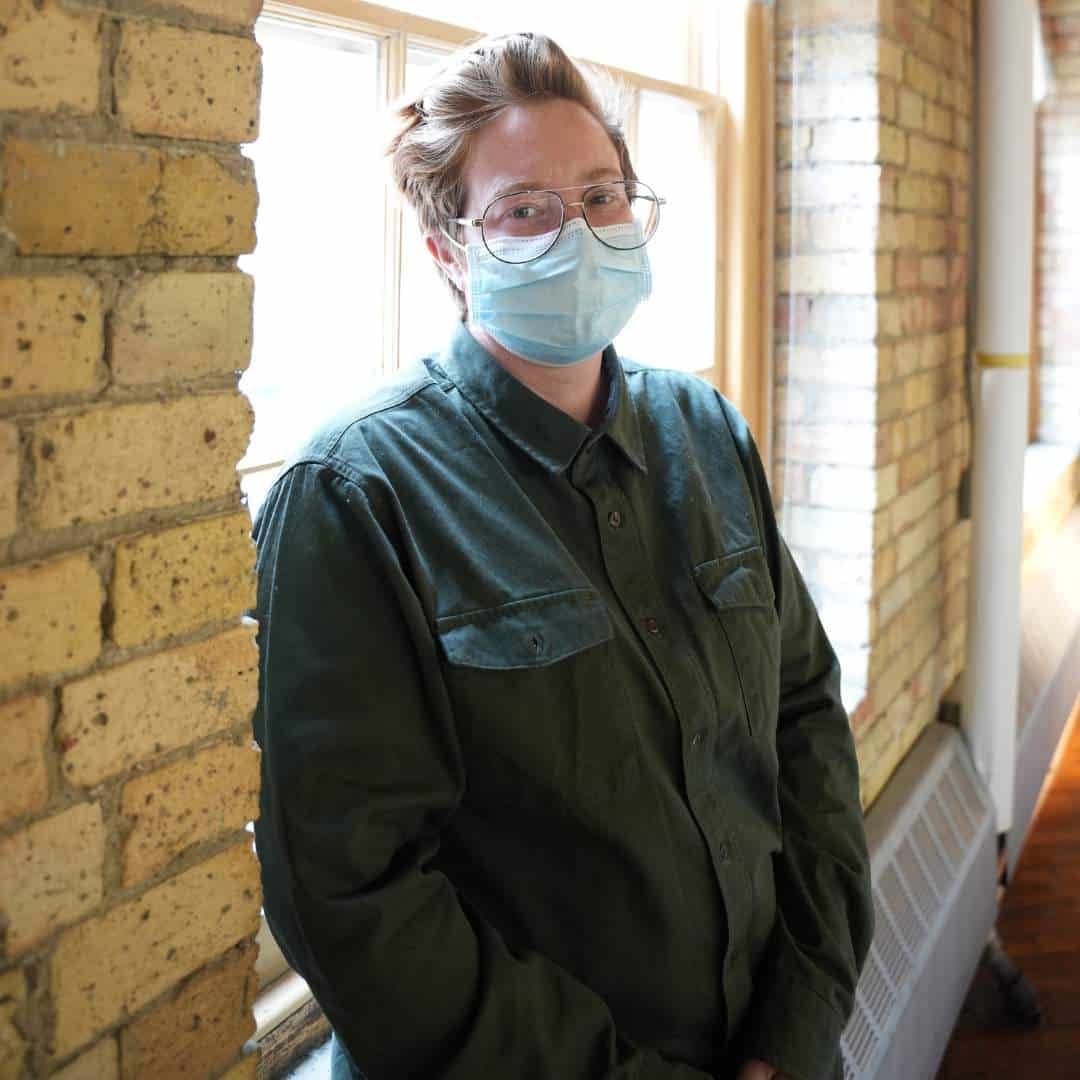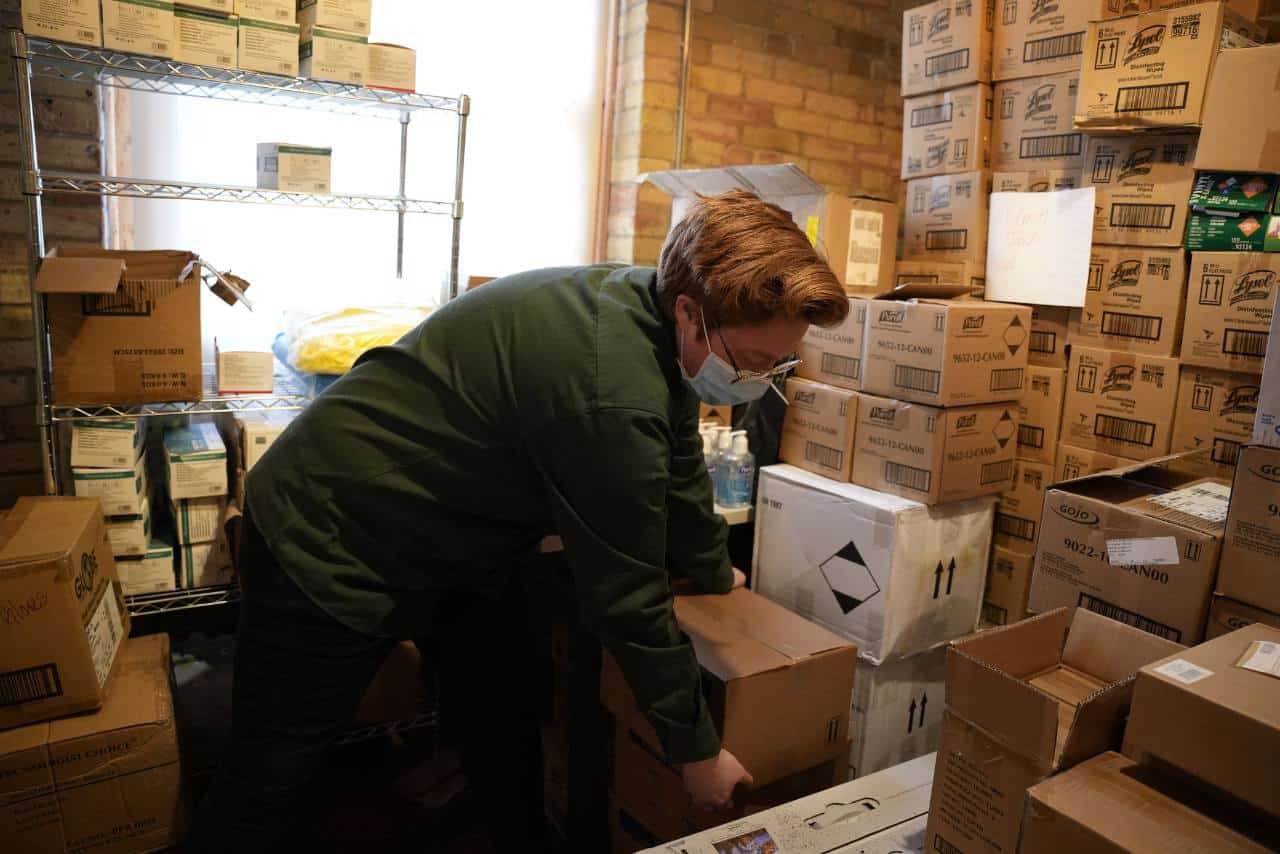For many people, COVID-19 is no longer a daily concern. But in congregate living situations, like Eva’s shelter and two transitional housing locations, it is still very much a reality.
In early 2022, the City of Toronto earmarked funding for every shelter in the city to create an infection, prevention and control (IPAC) lead position to oversee the risks and manage outbreaks of any transmissible virus or disease. 
“IPAC goes beyond COVID-19. We saw that with the introduction of MPOX and the rise in respiratory syncytial virus (RSV) and the flu, we need measures in shelters to manage risks and transmission,” said Sarah, Eva’s IPAC manager.
In partnership with Toronto Public Health and other municipal and provincial governing bodies, Sarah creates and manages prevention and response practices for all transmissible illnesses. Each of Eva’s locations has its own guidelines based on how youth are served.
Outbreaks affect youth and staff
During the Omicron surge of 2021, there were more than 30 staff members who were off for COVID-related reasons. There were similar numbers of infections (or close contact) among youth. “Since March 2022, outbreaks have gone down significantly,” said Sarah.
“However, any time there are two or more cases that can be linked together in a city shelter, Toronto Public Health declares us in outbreak. There’s a long list of things that need to be implemented at sites to quell transmission.”
That list can include staff switching from surgical masks to N95s, stopping group activities or moving them online, staggering mealtimes and restricting staff from working at more than one Eva’s site. All measures that affect the services youth desperately need.
Outbreak periods last 10 days and each Eva’s location has its own plan based on their capacity and set-up. For example, youth who are at Eva’s emergency shelter may be sent to an isolation and recovery site operated by the city.
“We’re seeing upticks in flu and the common cold. It’s just the nature of congregate living. There are a lot of shared public spaces. Youth don’t share personal items but because some illnesses are so infectious, transmission happens,” said Sarah.
Eva’s doesn’t declare an outbreak for these types of illnesses, but they follow many of the same processes, allowing youth to isolate on site until symptoms have been resolved for 24 hours.
As 2023 gets underway, COVID-19 cases are on the rise. “Anxiety rises when you’ve got signs everywhere saying you’re in outbreak and young people are already under extreme stress and possibly crisis, which exacerbates the anxieties that exist for our population.”
Moving forward, Sarah will continue to follow public health guidance even as COVID becomes less of a concern for the public.
When it comes to IPAC, all of Eva’s locations have a thoughtful plan to keep everyone as safe as possible.

